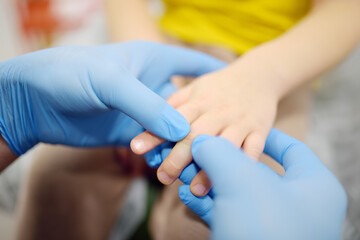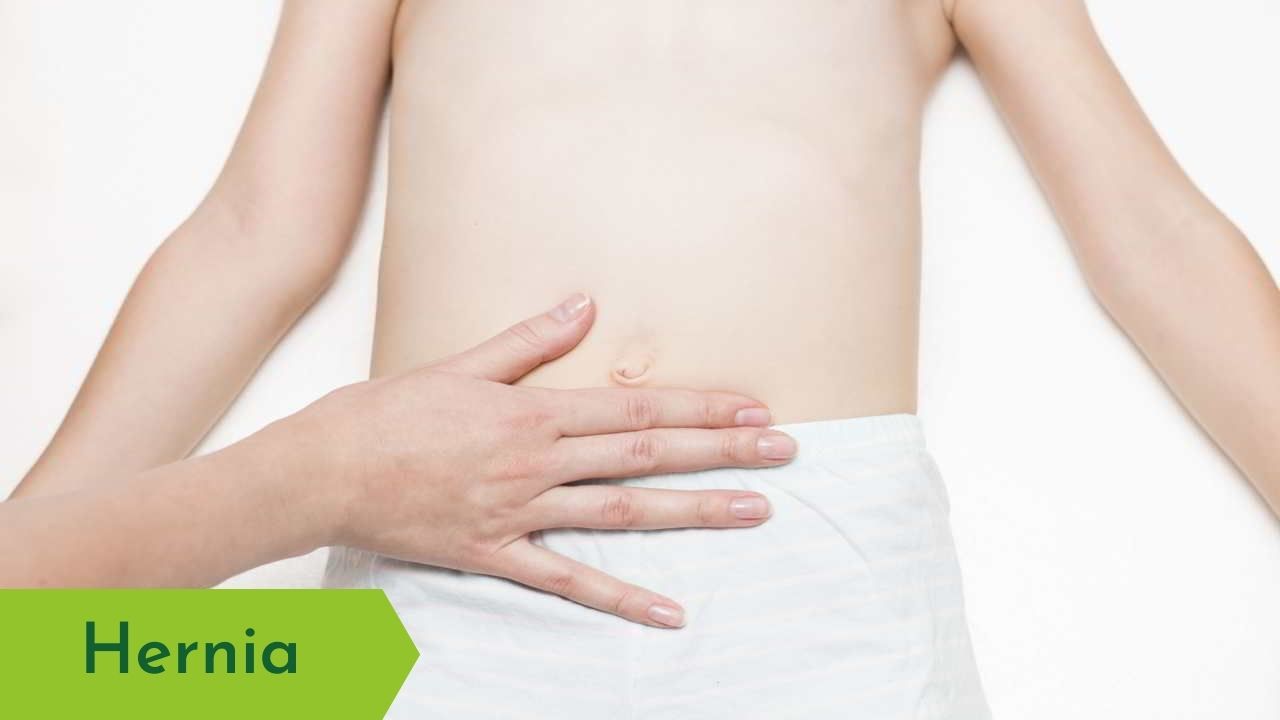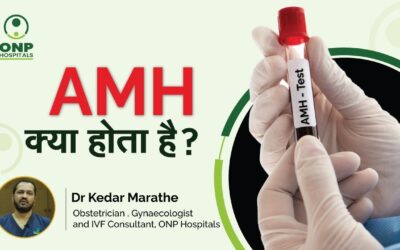As a pediatrician at ONP Hospitals, I’ve witnessed countless stories of resilience and recovery, but one case stands out—little Anaya’s story. Anaya, a spirited four-year-old, came to us after a severe finger injury that happened while she was playing in the backyard....

Overview
Gallstones are hardened digestive fluid deposits that may develop in the gallbladder. You may find your gallbladder on the right side of your belly, immediately under your liver. It is a tiny, pear-shaped organ. The gallbladder is a digestive organ that stores bile, which is discharged into the small intestine as necessary.
Gallstones may vary in size from as little as a grain of sand to as big as a golf ball, depending on their location in the body. Some individuals get a single gallstone, while others grow a large number of gallstones all at once.
Gallbladder removal surgery is frequently required for those who are experiencing symptoms as a result of their gallstones. Gallstones that are not accompanied by any indications or symptoms are usually not necessary to treat.
Everything You Need To Know About Gallstones
What Is It?
Your gallbladder is a tiny organ found in your upper right abdomen, just behind your liver, and is responsible for the production of gallstones. Bile is stored in this pouch, a greenish-yellow liquid that aids in digestion and is produced by the liver. Gallbladder problems often develop when something, such as a gallstone, becomes lodged in the bile duct of the gallbladder.
Gallstones are formed when chemicals in bile, such as cholesterol, solidify and form a stone in the gallbladder.
Gallstones are quite prevalent and can go unnoticed since they are asymptomatic. However, around 10% of those diagnosed with gallstones will have visible symptoms within 5 years of their diagnosis.
Causes
A chemical imbalance causes gallstones in the bile in the gallbladder, which may lead to gallstones. Even though experts are still unsure of the specific source of the imbalance, there are many possibilities:
- Your bile contains excessive cholesterol: Yellow cholesterol stones might form if your bile contains too much cholesterol. If your liver produces more cholesterol than your bile can break down, hard stones may form.
- A high level of bilirubin in your bile: The breakdown of red blood cells results in bilirubin production, a chemical compound. After it is formed, it travels through the liver and finally exits the body.
This excess production of bilirubin may be caused by various illnesses, including liver disease and blood problems. As bilirubin builds up in the gallbladder, pigment gallstones grow. It is common for these hard stones to be either black or dark brown.
- Concentrated bile due to a full gallbladder: For your gallbladder to work effectively, it must be able to clear its bile. A lack of bile expulsion may lead to the formation of stones in the bile ducts.
Symptoms
80% of persons with gallstones do not have any symptoms and do not need any medical attention. If gallstones induce symptoms, they may be classified as the following:
- Pain in the abdomen, most often on the right side, but sometimes on the left (where the gallbladder is located). The discomfort might move to the lower back. Gallstones may cause pain that is constant or intermittent. Each time it happens, it might last anywhere from 15 minutes to several hours.
- The ability to detect high-fat food. The gallbladder contracts as a result of the presence of fats, which might exacerbate discomfort.
- Unusual belching, gas, nausea, or loss of appetite.
Gallstones may lead to more severe conditions, including pancreatitis or bile duct infections. Jaundice and severe stomach discomfort are possible side effects (yellow color of the skin or whites of the eyes).
Treatments
A majority of individuals with gallstones that don’t produce any symptoms will not require therapy. Depending on your symptoms and the findings of diagnostic tests, a urologist doctor will assess whether medication for gallstones is warranted.
Symptoms of gallstone problems, such as increased abdominal discomfort, may be recommended by your doctor. Treatment is available if gallstone symptoms develop in the future.
Gallstones may be treated with:
- Surgery to remove the gallbladder (cholecystectomy): Because gallstones commonly return, surgery to eliminate your gallbladder may be recommended by your doctor. Bile is no longer retained in your gallbladder after it is removed, and instead, it runs straight into your small intestine.
Gallbladder removal does not impair your capacity to digest food, although it might induce diarrhea, which is generally transient.
- Medications to dissolve gallstones: Gallstone-dissolving medications may be used orally. If you want to get rid of your gallstones this way, you’ll need months or even years of therapy, and they’ll likely develop again if you stop treatment.
There are situations when medications fail. For those who can’t have surgery to remove gallstones, medication is an option.
Conclusion
There is often a good prognosis for those who have gallstones and require surgery to eliminate them or remove their gallbladder. Most of the time, stones don’t reappear once they’ve been removed.
The gallstones may reappear if you don’t have surgery and elect to take medicine to dissolve them, so you and your physician will need to keep an eye on how your treatment is going.
Sub Services
What Patient has to say about us
People heavily rely on reviews from other patients when choosing a healthcare provider
Our Patients Many many happy returns of the day......... The best doctor in the world My mother was suffering from severe pain in both knees and spine. Dr. Aashish arbat sir has operated today after 15days she is doing every thing thank you Dr aashish arbat sir and team Especially the major support was from Dr Ram sir from admission to dischatge and follow ups and taken care very nicely thanku Dr. Ram sir Our Patients After enduring knee pain for the past decade, my mother sought advice from various doctors in Nagpur, Nashik, and Pune. They all recommended knee replacement surgery, but it was only when we discovered Dr. Aashish Arbat and the option of robotics surgery that we made the decision to proceed. The surgery took place on June 23, 2023, and it turned out to be an incredible experience. To our astonishment, on the morning of June 24, my mother was able to stand on her own legs and even take a few steps. This remarkable progress was made possible due to the advanced assistance of robotics arm and Artificial Intelligence. Dr. Aashish Arbat is an exceptional and highly experienced surgeon, and we are immensely grateful for his expertise. We also extend our appreciation to his colleagues, Dr. Sharma and Dr. Ram, for their excellent skills and compassionate nature. Our heartfelt thanks go out to the entire team for enabling my mother to live a pain-free life Our Patients My mother got her both robotic knee replacement from sir on Oct 2021. The team and sir have made the complete process seamless. Especially my mother was very comfortable post her surgery. Thank you Dr Arbat and team. Our Patients Our Patients Our Patients Hello. My wife has severe arthritis in her body knees since 2017. We communicated many doctors but she was not happy. We visited Dr arbat for same issue and he came up with robotic knee replacement solution which suited her accurately and she is walking 5-6km daily without hesitation and living comfortably. Thanks Dr. Aashish Arbat and his new technology.![]()
Chhaya Kate
![]()
pravin kharat
![]()
T Srivalli
![]()
Mohan Satavekar
![]()
VIVEK PANDEY
![]()
Subhash Bobade
Meet Our Team of Experts
22+ Years of Experience
Dr Neeraj Rayate
MBBS, DNB-General Surgery
Consultant Laparoscopic Surgeon | Bariatric Surgeon | Laparoscopic Surgeon | General Surgeon
20+ Years Experience
Dr. Ashish Shrivastava
General,Laproscopic & Proctologist
MBBS DNB-General Surgery,FACRSI,IAGES
20+ Years Experience
Dr Satish Pattanshetti
MBBS, MS-General Surgery
Consultant Laparoscopic Surgeon | Bariatric Surgeon | Metabolic Surgery | Laparoscopic Surgeon | General Surgeon
16+ Years Experience
Dr. Suhas Patil
Proctologist | Laparoscopic Surgeon | General Surgeon | Piles, Fistula & Fissure LASER Treatment
Blogs
Addressing Childhood Obesity: Preventative Measures and Healthy Lifestyle Choices
Childhood obesity is growing concern. More kids are affected every year. Tackling this issue early is crucial. This ensures children grow up healthy and happy. Fortunately, there...
Healthy Sleep Habits for Children: Tips for Parents
Good sleep is essential for children’s health and development. Yet getting kids to sleep can sometimes feel like an uphill battle. Establishing healthy sleep habits early on sets...
The Role of Diet and Nutrition in Managing Encopresis in Children: Insights from Dr. Amita Phadnis
Encopresis, a condition characterized by involuntary soiling in children, can be distressing for both the child and their family. First and foremost, complete treatment of...
Videos
Dr. Amita Phadnis’s Full Speech on Survival & Health Rights at UNICEF India.
Dr. Amita Phadnis ,M.D., Gave a Motivating Speech
Breast cancer is cancer that forms in breast cells. Women are mostly diagnosed with this cancer. Although it can be seen in both men and women
What is AMH
The granulosa cells in your ovarian follicles create the anti-Mullerian hormone, often known as AMH. According to the American College of Obstetricians and Gynecologists (ACOG), the generation of AMH is a reflection of your ovarian reserve.
FAQ’s
Pregnancy and Migraine Headaches: What Women Need to Know
When you are pregnant or breastfeeding, then you should be aware that migraine headaches are a normal part of the journey. Pregnant women might feel headaches owing to...
What Is the Problem of Orthopedics in Children?
While orthopaedic problems are commonly seen in and associated with the elderly, it’s important to be alert regarding the fact that they can afflict young people and children as well.
All You Need to Know About Reproduction
Most science students have to study about reproduction in their high school syllabus, and some learn from their parents, who may discuss it even earlier. It’s a very good thing to know about our own bodies…
Explore All Departments

ONP Prime

ONP Leela

IVF

Oncology

Pediatrics

Urology

Neonatology

Ophthalmology

Orthopedics

Gynaecology

Cardiology

IVF

Oncology

Pediatrics

Urology

Neonatology

Ophthalmology





 Home
Home





